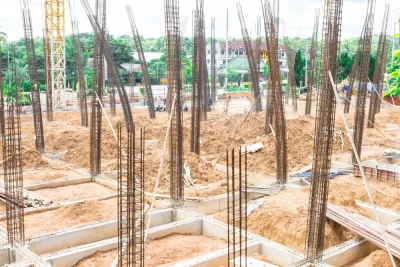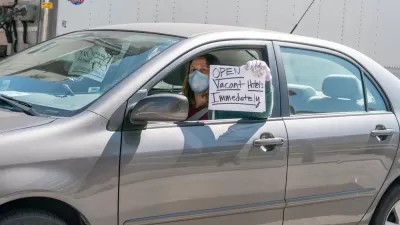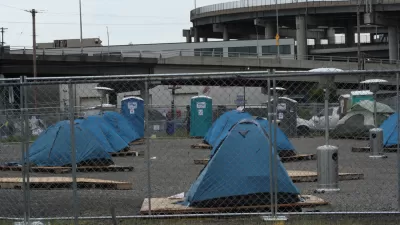Analysis from the Joint Center for Housing Studies of Harvard University predicts the pandemic will reduce rents, but only at the top of the market.

"While it is too early to know how COVID-19 will affect rental markets, early signs suggest another slowdown in demand is coming," according to an article by Whitney Airgood-Obrycki.
Data from the past three years informs the prediction that rental demand. In terms of historic demand, in 2017 and 2018, demand receded, according to Airgood-Obrycki, and only increased slightly in 2019 (and at a much slower pace than demand increased in every year from 2004 to 2016). But in a drastic difference from the last three years, the new wave of decreasing rental demand is likely to be caused by unemployment.
The situation is also clearly distinct from the last recession, when homeownership collapsed, pushing demand toward rental markets. Foreclosures could increase in the future, however, changing the equation as the economic crisis deepens and lengthens. "Even so, it currently looks unlikely that transitions from homeownership to renting would match the scale of the previous recession," according to Airgood-Obrycki.
Future construction could also change the whole equation, according to Airgood-Obrycki. New data from the U.S. Department of Commerce indicates that construction slowed drastically in the past month. Single-family home construction in March fell 17.5% from February, while multi-family housing starts fell 32.1% between February and March. The industry is laying off workers in large numbers as well, preparing for worse.
Airgood-Obrycki's summary of the situation, after surveying all the indicators, is that rent will only get cheaper at the high-end of the market. "Cooling demand could soften rents at the high end of the market, but those benefits are unlikely to translate to lower rents at the bottom end as households compete for an already limited low-rent supply." Airgood-Obrycki assessment's thus resembles a recent prediction by analysts from the Brooking Institution—that the coronavirus is likely to deepen social and economic inequality in the country.
FULL STORY: RENTAL MARKET LIKELY HEADED FOR A SLOWDOWN

Maui's Vacation Rental Debate Turns Ugly
Verbal attacks, misinformation campaigns and fistfights plague a high-stakes debate to convert thousands of vacation rentals into long-term housing.

Planetizen Federal Action Tracker
A weekly monitor of how Trump’s orders and actions are impacting planners and planning in America.

In Urban Planning, AI Prompting Could be the New Design Thinking
Creativity has long been key to great urban design. What if we see AI as our new creative partner?

San Francisco Mayor Backtracks on Homelessness Goal
Mayor Dan Lurie ran on a promise to build 1,500 additional shelter beds in the city, complete with supportive services. Now, his office says they are “shifting strategy” to focus on prevention and mental health treatment.

How Trump's HUD Budget Proposal Would Harm Homelessness Response
Experts say the change to the HUD budget would make it more difficult to identify people who are homeless and connect them with services, and to prevent homelessness.

The Vast Potential of the Right-of-Way
One writer argues that the space between two building faces is the most important element of the built environment.
Urban Design for Planners 1: Software Tools
This six-course series explores essential urban design concepts using open source software and equips planners with the tools they need to participate fully in the urban design process.
Planning for Universal Design
Learn the tools for implementing Universal Design in planning regulations.
Gallatin County Department of Planning & Community Development
Heyer Gruel & Associates PA
JM Goldson LLC
Mpact (founded as Rail~Volution)
City of Camden Redevelopment Agency
City of Astoria
Jefferson Parish Government
Camden Redevelopment Agency
City of Claremont





























